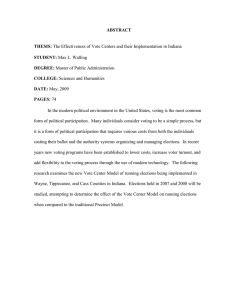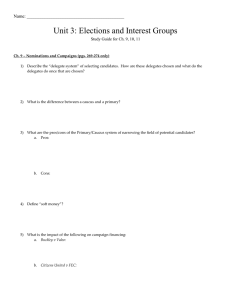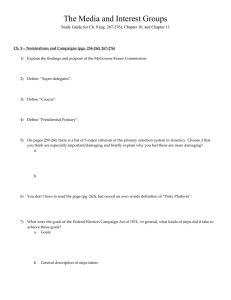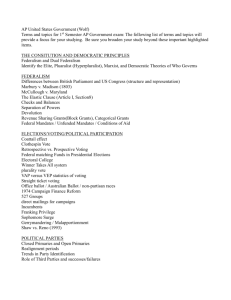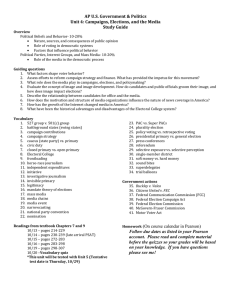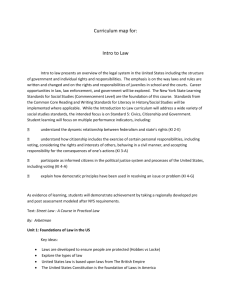Networking European Citizenship Education NECE – Workshop IV:
advertisement
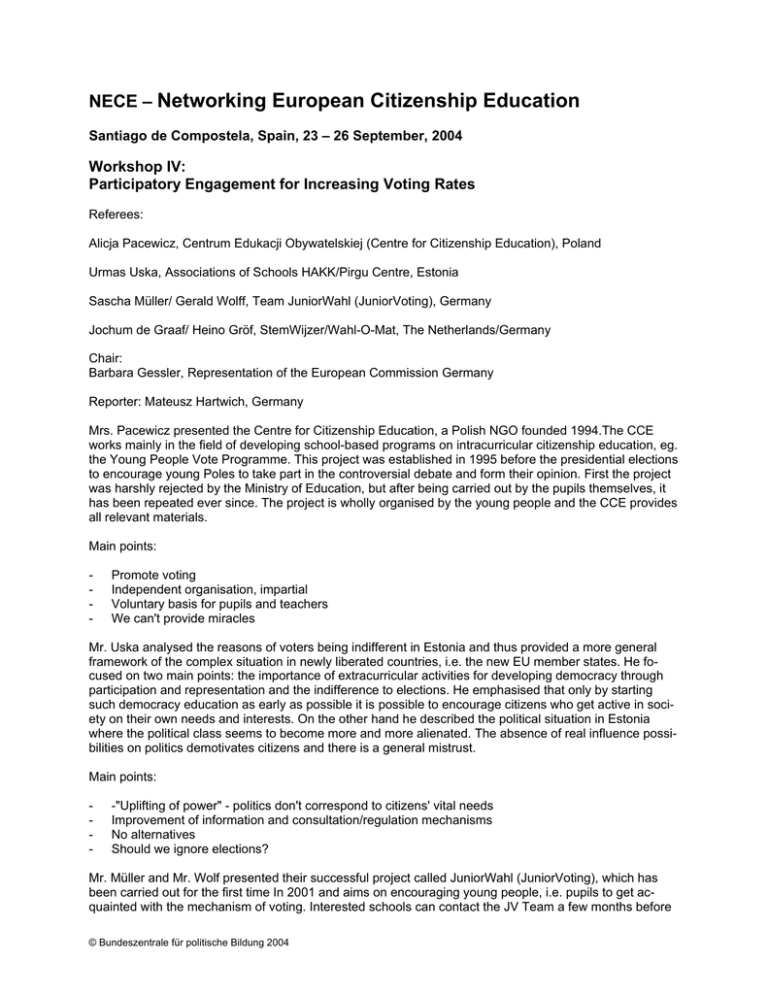
NECE – Networking European Citizenship Education Santiago de Compostela, Spain, 23 – 26 September, 2004 Workshop IV: Participatory Engagement for Increasing Voting Rates Referees: Alicja Pacewicz, Centrum Edukacji Obywatelskiej (Centre for Citizenship Education), Poland Urmas Uska, Associations of Schools HAKK/Pirgu Centre, Estonia Sascha Müller/ Gerald Wolff, Team JuniorWahl (JuniorVoting), Germany Jochum de Graaf/ Heino Gröf, StemWijzer/Wahl-O-Mat, The Netherlands/Germany Chair: Barbara Gessler, Representation of the European Commission Germany Reporter: Mateusz Hartwich, Germany Mrs. Pacewicz presented the Centre for Citizenship Education, a Polish NGO founded 1994.The CCE works mainly in the field of developing school-based programs on intracurricular citizenship education, eg. the Young People Vote Programme. This project was established in 1995 before the presidential elections to encourage young Poles to take part in the controversial debate and form their opinion. First the project was harshly rejected by the Ministry of Education, but after being carried out by the pupils themselves, it has been repeated ever since. The project is wholly organised by the young people and the CCE provides all relevant materials. Main points: - Promote voting Independent organisation, impartial Voluntary basis for pupils and teachers We can't provide miracles Mr. Uska analysed the reasons of voters being indifferent in Estonia and thus provided a more general framework of the complex situation in newly liberated countries, i.e. the new EU member states. He focused on two main points: the importance of extracurricular activities for developing democracy through participation and representation and the indifference to elections. He emphasised that only by starting such democracy education as early as possible it is possible to encourage citizens who get active in society on their own needs and interests. On the other hand he described the political situation in Estonia where the political class seems to become more and more alienated. The absence of real influence possibilities on politics demotivates citizens and there is a general mistrust. Main points: - -"Uplifting of power" - politics don't correspond to citizens' vital needs Improvement of information and consultation/regulation mechanisms No alternatives Should we ignore elections? Mr. Müller and Mr. Wolf presented their successful project called JuniorWahl (JuniorVoting), which has been carried out for the first time In 2001 and aims on encouraging young people, i.e. pupils to get acquainted with the mechanism of voting. Interested schools can contact the JV Team a few months before © Bundeszentrale für politische Bildung 2004 elections (regional, national, European) and it provides the tools how to organise selections, the official materials and documents. The project has been carried out for almost all elections since 2001 and has been tested in Poland for the European Elections in 2004. Main points: - Democracy by doing: search information, form opinion Encourage discussion in groups, families, schools Media attention motivates It might make a difference. After lunch break Mr. de Graaf and Mr. Gröf introduced in a joint presentation the StemWijzer/Wahl-O-Mat project. It has been established 15 years ago in the Netherlands and then been a success story, exported to other countries. It aims at providing voters with a recommendation for the elections by comparing party programmes and filtering clear answers for relevant issues. Since state institutions have the obligation to make people vote, they have been a partner in popularisation and promoting the tool. There will be a pilotproject in 2005 in Germany to implement the system in TV. Everyone can download a personal, basic copy or install it at homepage, full version can be bought. Main points: - Stimulating discussions, need for more information Voting can be fun Pressure on politicians to take clear positions No more "yes-buts"! Discussion main points: - Political literacy stimulated through voting simulation projects(VSP's) - VSP's - cheaper version of democracy education? - Problem: presentation/image vs. content of political parties/programme - Raise relevance of elections (eg. EP elections) for everyday needs - What should political information should be like? Are we allowed to do infotainment? - Do we reach "captured people" (school, activists)? Conclusions/desiderata. Civic Education (CE) should be organized by both the State (in school programmes) and NGO's - both national and Europeans. The target groups are: a) young people (schoolchildren); b) multipliers/social actors (eg. teachers); c) media; d) the politicians. There should be a fund established which will provide financial support for exchange projects and allow poorer member states to get the tools and materials. We are committed to develop a network of organizations for increasing responsible citizenship activities. There will be an e-mail list established, where all participants can express their interests and decide, which specific aspects they want to see developed. We call for an international conference on exchange experience in voting increasing projects. We will join forces to raise funds and get institutional support for carrying out these projects in different member states. Our next step will be a collection of all relevant materials, a "manual of good practice", which can be accessible for all activists. © Bundeszentrale für politische Bildung 2004


